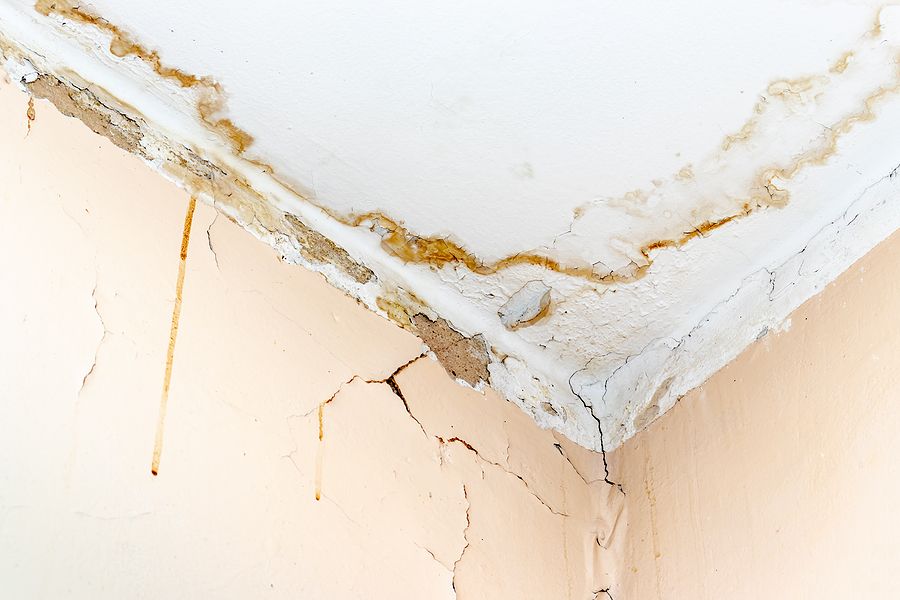Exploring the Main Factors for Water Leaks in Your Home
Exploring the Main Factors for Water Leaks in Your Home
Blog Article
The author is making several good pointers related to How to detect water leaks in your home as a whole in this great article further down.

Leaks not only cause waste of water however can also trigger unneeded damage to your home as well as advertise undesirable natural development. By looking and also recognizing for everyday situations that create leakages, you can secure your residence from future leakages as well as unneeded damage.
Intruding roots
A lot of water leaks begin outside the residence rather than inside it. You may discover damp patches or sinkholes in your yard, and also that may mean that tree origins are getting into water lines causing water to seep out.
Corroded water systems
As time goes by, your plumbing system ages and deterioration such as rust might begin eating away the pipelines. This could be the source of discoloration or warping on your pipes. This calls for an assessment with your plumber immediately. Think about replacing the pipes since they are at a higher threat of rust than the more recent versions if our plumbing system is old.
Malfunctioning Pipeline Joints
The factor at which your pipes connect is often the weakest link in the waterline. Pipeline joints can wear away with time, leading to water leakages. Regrettably, most of pipeline joints are not conveniently visible. If you have loud pipelines that make ticking or banging sounds, particularly when the hot water is turned on, your pipe joints are probably under a lot of stress. It is advisable to have your plumber evaluate your system once a year.
Instantaneous temperature level modifications.
Severe temperature adjustments in our pipelines can cause them to increase as well as acquire unexpectedly. This expansion as well as contraction may create fractures in the pipes, especially if the temperature level are below freezing. It would be best if you kept an eye on just how your plumbing works. The presence of the formerly stated situations regularly suggests a high danger.
Poor Water Connectors
At times, a leakage can be created by loose tubes and pipelines that supply your devices. In case of a water connections leak, you may see water running directly from the supply line or pools around your devices.
Clogged Drains
Clogged drains could be annoying as well as inconveniencing, however they can in some cases wind up causing an overflow causing rupture pipelines. Maintain getting rid of any materials that might decrease your drains that can block them to stay clear of such hassles.
All the above are sources of leakages but not all water leakages result from plumbing leaks; some leaks could come from roof covering leakages. All leaks need to be fixed promptly to stay clear of water damage.
Leaks not just trigger waste of water yet can likewise cause unneeded damage to your residence as well as promote undesirable natural development. By looking and understanding for day-to-day circumstances that cause leakages, you can safeguard your house from future leaks and also unnecessary damage. Today, we will look at six leakage triggers that might be causing your pipelines to leak.
At times, a leak can be triggered by loosened hoses and pipes that supply your devices. In case of a water connections leakage, you might see water running directly from the supply line or pools around your home appliances.
How To Check For Water Leak In Your Home
How To Check for Leaks
The average household's leaks can account for nearly 10,000 gallons of water wasted every year and ten percent of homes have leaks that waste 90 gallons or more per day. Common types of leaks found in the home are worn toilet flappers, dripping faucets, and other leaking valves. These types of leaks are often easy to fix, requiring only a few tools and hardware that can pay for themselves in water savings. Fixing easily corrected household water leaks can save homeowners about 10 percent on their water bills.
To check for leaks in your home, you first need to determine whether you're wasting water and then identify the source of the leak. Here are some tips for finding leaks:
Take a look at your water usage during a colder month, such as January or February. If a family of four exceeds 12,000 gallons per month, there are serious leaks.
Check your water meter before and after a two-hour period when no water is being used. If the meter changes at all, you probably have a leak.
Identify toilet leaks by placing a drop of food coloring in the toilet tank. If any color shows up in the bowl after 10 minutes, you have a leak. (Be sure to flush immediately after the experiment to avoid staining the tank.)
Examine faucet gaskets and pipe fittings for any water on the outside of the pipe to check for surface leaks.
Undetected water leaks can happen without the home or business owner even realizing. If you suspect a water leak, but not able to find the source. It is time to contact a professional water leak detection service, The Leak Doctor.
How To Find a Water Leak In Your Home
https://www.leakdoctor.com/blog/How-To-Check-For-Water-Leak-In-Your-Home_AE197.html

Hopefully you enjoyed reading our part about Top Causes of Home Water Leaks. Thanks a ton for finding the time to read our piece. Sharing is caring. One never knows, you may very well be helping someone out. Thanks a lot for your time invested reading it.
Secure, fast, dial! Report this page